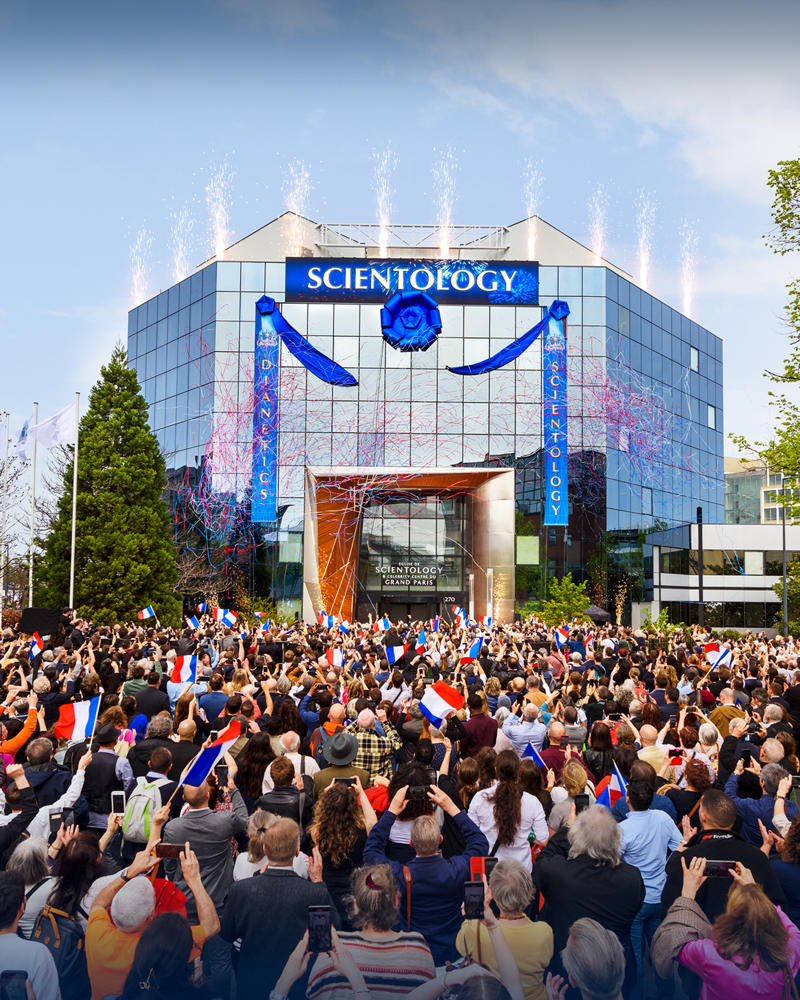The International Impact of Scientology: Development and Effect Worldwide
The International Impact of Scientology: Development and Effect Worldwide
Blog Article
Debunking Misconceptions: Separating Reality From Fiction Concerning Scientology

Origins of Scientology
The beginnings of Scientology trace back to the mid-20th century when L. Ron Hubbard, a sci-fi writer, founded the belief system in the 1950s. Hubbard's advancement of Scientology stemmed from his earlier self-help system called Dianetics, which he presented in the 1940s - Scientology. The change from Dianetics to Scientology marked a shift in the direction of a more detailed religious philosophy that incorporated aspects of psychology, Eastern spiritual customs, and Hubbard's very own concepts on human existence
Hubbard's exploration right into the human mind and spirit caused the creation of Scientology as a faith focused around the concept of spiritual knowledge and self-improvement through a process called auditing. Bookkeeping, a kind of spiritual counseling, aims to aid people conquer psychological and emotional obstacles, called engrams, that hinder individual development and recognition.
As Hubbard's teachings acquired popularity, Scientology evolved into a global motion with a considerable following. Regardless of disputes and criticisms bordering its practices and beliefs, Scientology remains to bring in fans seeking spiritual fulfillment and individual development.
Core Beliefs and Practices

An additional fundamental facet of Scientology is the idea of the Thetan, the spiritual essence of an individual that goes beyond the physical body. Fans intend to recognize and enhance their link to the Thetan via various methods such as research training courses and filtration routines.
The Church of Scientology additionally positions a strong emphasis on the importance of personal obligation and the idea that people have the power to shape their very own destinies. With adherence to ethical guidelines and the pursuit of self-improvement, specialists of Scientology strive to attain greater levels of happiness, success, and spiritual fulfillment.
Criticisms and controversies
In the middle of Scientology's core ideas and practices lies a landscape noted by disputes and objections that have actually sparked intense discussion and scrutiny. Furthermore, Scientology's status as a tax-exempt spiritual organization in some nations has actually been a factor of contention, with movie critics arguing that its Check This Out techniques are a lot more comparable to an organization than a faith.
Another area of debate borders the Church's therapy of skeptics and movie critics. Reports have emerged of harassment, scare tactics, and lawful risks directed at those that speak out versus Scientology. This has actually increased concerns about free speech and the company's dedication to openness and accountability.
While Scientology has actually emphatically refuted a lot of these claims, the objections and disputes bordering the Church continue to sustain public skepticism and examination.
Scientology's Influence in Society
With its presence in numerous fields of culture, Scientology's influence can be observed in both refined and obvious methods, shaping interactions and perceptions. In the world of education and learning, the Church of Scientology has encountered scrutiny for its efforts to present its mentors right into colleges via programs like "Applied Scholastics." Movie critics argue that such campaigns obscure the lines in between church and state, possibly affecting the academic experiences of trainees. In addition, Scientology's impact encompasses the world of mental wellness, where its sights on psychiatry and psychology have triggered discussions within the medical community. The church's anti-psychiatry position these details has brought about skepticism and worries pertaining to the efficiency of psychological wellness therapies. In the realm of amusement, Scientology's organization with top-level stars has accentuated the religious beliefs, both positively and adversely. The participation of popular numbers in Scientology has, sometimes, offered to popularize the religious beliefs, while in others, it has actually attracted criticism and elevated inquiries regarding the church's practices and ideas.
Debunking Common Misconceptions
What misconceptions about Scientology are typically held and how can they be exposed? One usual misconception regarding Scientology is that it is a cult. Nonetheless, the Church of Scientology is lawfully acknowledged as a religion in several nations, consisting of the USA, where it has tax-exempt condition. Like various other faiths, Scientology gives spiritual advice and methods for its members.
One more false impression is that Scientology forces its participants try this website to cut ties with their households. In truth, the church stresses the importance of family members partnerships and urges participants to maintain healthy connections with their loved ones.

Verdict
Finally, it is essential to different fact from fiction when going over Scientology. By analyzing its beginnings, core beliefs, disputes, and impact in society, we can unmask common false impressions bordering this religious beliefs. It is important to approach the topic with a objective and critical mindset in order to understand Scientology precisely and without prejudice.
Rooted in a foundation of spiritual enlightenment and personal growth, Scientology's core ideas and practices encompass a varied range of concepts and rituals. Central to Scientology is the idea that humans are never-ceasing spiritual beings who have actually forgotten their true nature. The participation of well-known figures in Scientology has, in some instances, offered to popularize the religious beliefs, while in others, it has actually attracted criticism and increased questions regarding the church's techniques and beliefs.
The Church of Scientology is lawfully acknowledged as a religious beliefs in many nations, consisting of the United States, where it has tax-exempt condition. Like other religions, Scientology offers spiritual advice and practices for its participants.
Report this page